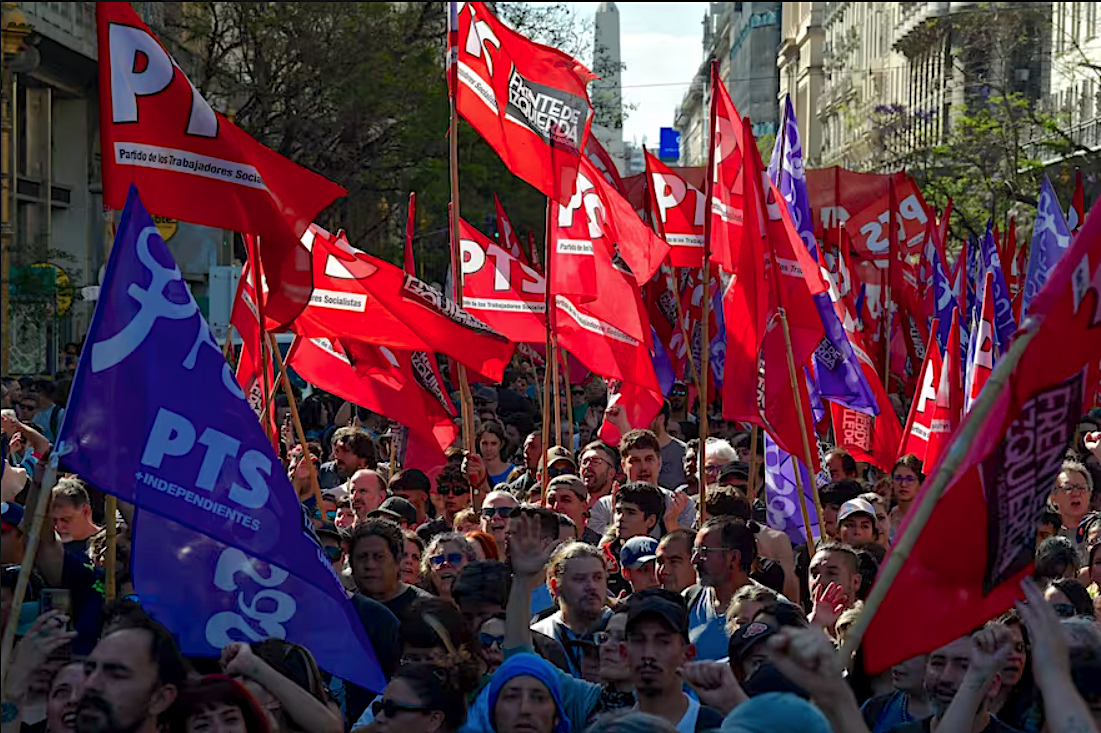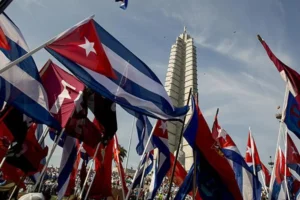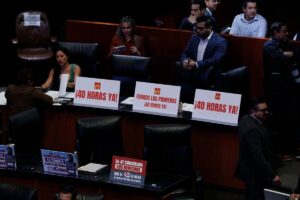
Published 12/26/2023 17:59 | Edited 12/31/2023 11:49
Argentine President Javier Milei signed a controversial decree that formalizes the dismissal of up to 7,000 public employees, as part of a cost reduction plan aimed at saving up to 5% of the country’s GDP (Gross Domestic Product). Furthermore, the package of measures includes significant changes to legislation, such as the repeal of the rent law, the limitation of the right to time off and the reduction of worker protection.
Milei’s decree, which comes into force on Friday, ten days after signing, triggered a series of adverse reactions. The opposition, unions and civil organizations spoke out against the changes, and the Court has already admitted that there is collective support from civil organizations against the decree.
Among the most controversial measures are the end of the limit on commissions charged by banks, the elimination of punitive fees, the cut in private health plan rates and the repeal of the law that established quarterly increases in pensions. The government also opens space for the privatization of public companies and the conversion of sports clubs into public limited companies.
Resistance to change is not limited to the political sphere. The State Workers Association (ATE), a union that represents public servants in Argentina, reacted vigorously to the decree, marking the “National Day of Struggle” for this Wednesday (27). Rodolfo Aguiar, general secretary of the union, stated that a general strike is not ruled out.
“Nobody expects us to accept a single resignation,” declared Aguiar. “Workers perform essential tasks to ensure the functioning of all areas of the State, regardless of the type of their contractual relationship.”
The government, in turn, announced that it will use “all dissuasive measures” available to contain the protests, including the public order protocol. Previous demonstrations have been marked by restrictions on mobility, and the government is determined to prevent criticism of the package of measures from gaining traction on the streets.
The Argentine Congress began extraordinary sessions to debate complementary laws to Milei’s mega-decree. However, the opposition and trade unions resist the changes and ask the Court to consider the decision unconstitutional.
The ultraliberal president claims that the measures are necessary to face the country’s economic crisis, but the population and various sectors of society express concern about the social and economic impact of the proposed changes. The Argentine political scene is tense, with intense demonstrations and debates expected in the coming days.
Source: vermelho.org.br

